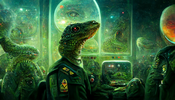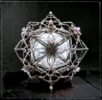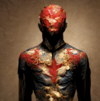Andrew, don't take me wrong. I am just questioning the underlying assumptions to provoke a deeper discussion.
I know that it could be a useful tool for prototyping and could also function as a sort of idea-prompting machine. I just worry that our current education system (constant exposure to the technomaniacs from Silicon Valley and lack of transmission of older cultural and philosophical thoughts) will lead in the direction that BHelmet indicated; where future generations can't even tell what made older art made by actual humans different from soulless digital art.
@psychegram
First off, based on what I know about machine learning, they will only be able to create simulacrums of the mind, but not the soul. This will fool some people into thinking that the machine is sentient, but it will never really come to life and seek spiritual liberation, for example. Neither will it understand qualia. They can only refine algorithms to better imitate the part of humans that already is machine-like, the mind, which mostly just interprets sense data. This will lead to programs that will have that "uncanny valley" effect, where things
almost seem real. But not quite.
Secondly, tools aren't evil or good, but they're also not independent of the minds that fashioned them, but rather a result of them. Both the photocameras as well as machine learning algos reflect a physicalist mindset and reinforce that philosophy among the population that uses them. I work in the field of medical anthropology, and the extreme shift in the approach to human health that was taken in South Asia as a result of getting forced to use Western medical equipment and methods is striking. Sure, the tools also came with the philosophy that is behind them, but the tools and methods of proof also condition those that use them long-term.
Thirdly, history shows that these tools can and will be abused by those in ponerized power, and it is quite noticeable that billions are spent on promoting the advancements in machine learning and the toys they create as a result. As we speak, China is creating its own massive Silicon Valley. Just like the American version, it is doubtful that it will be used for good. The amount of hype and money it is getting this past few years suggests that it will be part of the toolbox of corporate and government sponsored social engineering.













